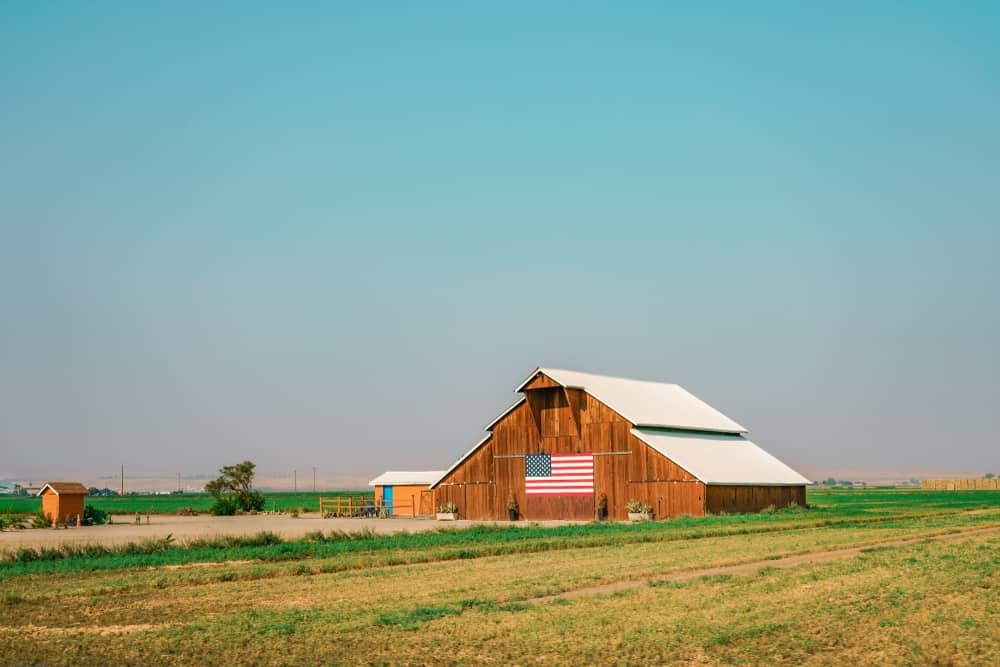Transforming rural health: NRHA’s H.R. 1 and RHTP advocacy
Nearly 20 percent of rural adults and 40 percent of rural children rely on Medicaid or the Children’s Health Insurance Program. For many rural health stakeholders, the passage of H.R. 1 in July has ushered in a new era of uncertainty for these essential programs. Also known as the reconciliation package or One Big Beautiful Bill Act (OBBBA), the sweeping legislation contains many rural health policy changes, along with significant funding cuts. This includes:
- Work and community engagement requirements for Medicaid
- More frequent Medicaid eligibility checks and changes to eligibility requirements
- Changes to the way Medicaid is financed at the state level

For rural areas, these cuts will be particularly detrimental. Kaiser Family Foundation estimates federal Medicaid spending in rural areas is expected to decrease by $137 billion, while a Congressional Budget Office analysis estimates the law will increase the number of uninsured Americans by 11.8 percent to 16 million by 2034. Further, a rural-specific analysis by NRHA and Manatt Health, a professional services firm specializing in health policy, health care transformation, and Medicaid redesign, shows that rural hospitals are slated to lose 21 cents out of every dollar they receive in Medicaid funding. At these facilities, any loss in funding could be catastrophic, with 432 rural hospitals across America already vulnerable to closure.
"Rural hospitals are slated to lose 21 cents out of every dollar they receive in Medicaid funding." – NRHA & Manatt Health |
“Reductions in Medicaid funding of this magnitude will accelerate rural hospital closures, and for those rural hospitals that remain open, lead to the elimination or curtailment of critical services, such as obstetrics, chemotherapy, and behavioral health,” the Manatt report states. “On average, states where 40 percent or more of rural hospitals are at risk of closure would see Medicaid rural hospital funding reductions of more than 20 percent.”
According to NRHA Chief Policy Officer Carrie Cochran-McClain, who along with NRHA’s Government Affairs team has been working with and advocating for rural health stakeholders across the country to ensure their voices are heard in the wake of OBBBA, “the places and people in greatest need are likely going to be hurt the most by the changes here.”

“It impacts the individual as well as the larger system,” she says. “We had half of hospitals operating at negative margins before these cuts. Different pieces of the law are going into effect at different times. It will be a gradual stressor on rural providers. It might not be an automatic closing of doors overnight, but we’re going to see changes to the capacity of what local providers are able to do over time.”
“It’s generally going to mean less reimbursement coming in and more uncompensated care because rural hospitals will still care for patients in the ER who are now uninsured,” adds Alexa McKinley Abel, NRHA government affairs and policy director. “Because Medicaid is such an important source of coverage it’s also a huge payer in rural areas, usually ranked behind Medicare. That is going to put further financial strain on a lot of hospitals, clinics, nursing facilities, and so on.”
"Reductions in Medicaid funding of this magnitude will accelerate rural hospital closures, and for those rural hospitals that remain open, lead to the elimination or curtailment of critical services." – NRHA & Manatt Health |
In an attempt to offset the losses rural health care providers will experience as a result of funding cuts, OBBBA contains a provision known as the Rural Health Transformation Program (RHTP). Described by CMS as an effort “to strengthen rural communities across America by improving health care access, quality, and outcomes by transforming the health care delivery ecosystem,” RHTP includes $50 billion in funding that will be distributed to states to improve rural health care access and delivery.
NRHA GA team Marguerite Peterseim, Zil Joyce Dixon Romero, Carrie Cochran-McClain, Alexa McKinley Abel, Sabrina HoOverall, RHTP is an unprecedented federal investment in rural health to strengthen sustainable access to care and improve health outcomes. The program directs funding toward rural health innovation, prevention, sustainable access, technology, partnerships, infrastructure development, and workforce investment, with states helping rural communities meet strategic goals. It will be essential to ensure that rural hospitals, which serve as lifelines in their communities, receive a fair share of this funding to maintain access and strengthen local systems of care.
At the same time, NRHA believes that the onetime funding, while significant, cannot by itself secure the long-term stability of rural providers. An analysis by NRHA and Manatt Health presents three different scenarios – all of the funding going to rural hospitals, 80 percent going to rural hospitals, and it being proportionate to their number of Medicaid patients – and in each one rural hospitals don’t end up being whole at the end of the day.
"The places and people in greatest need are likely going to be hurt the most by the changes here." – Carrie Cochran-McClain |
“CMS has been very clear that they want to use the RHTP for longerterm rural health transformation – but without continued policies that guarantee sustainable reimbursement, rural hospitals and clinics will remain at risk,” Cochran-McClain says. “This program is an important step forward, but it must be paired with durable reforms that ensure rural Americans have reliable access to care for years to come.”
For NRHA’s Government Affairs team, RHTP has been the primary focus of their advocacy efforts since July. This has included meetings with CMS to provide specific feedback on how funds should be allocated, hosting webinars, creating advocacy materials for members, and getting offices of rural health and state rural health associations ready to engage. Going forward, Cochran-McClain encourages NRHA members – and anyone concerned about rural health care – to continue to raise their concerns and experiences with their members of Congress regarding RHTP funds and other vital issues.
"CMS has been very clear that they want to use the RHTP for longerterm rural health transformation – but without continued policies that guarantee sustainable reimbursement, rural hospitals and clinics will remain at risk." – Carrie Cochran-McClain |
“At the moment, we are encouraging people to talk to their members of Congress around the enhanced premium tax credits – the subsidies for people who receive coverage through the ACA Marketplace,” she says. “There are so many self-employed folks or folks employed by small businesses in rural areas who are more reliant on the Marketplace. Those tax credits are set to expire at the end of the year, so that’s another actionable item that people can still discuss with their members of Congress.”

“We want to say thank you to our members for engaging over the last few months,” McKinley Abel adds. “You are a crucial piece of this. You came to D.C., sent letters, made calls. Your efforts are so appreciated, and you really can help make a difference.”
Resources
NRHA offers resources to help you navigate H.R. 1, apply for RHTP funds, and advocate for what your rural community needs.
Read the updated H.R. 1 analysis by NRHA and Manatt Health, including state-level data.
